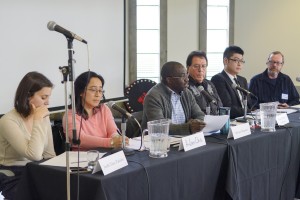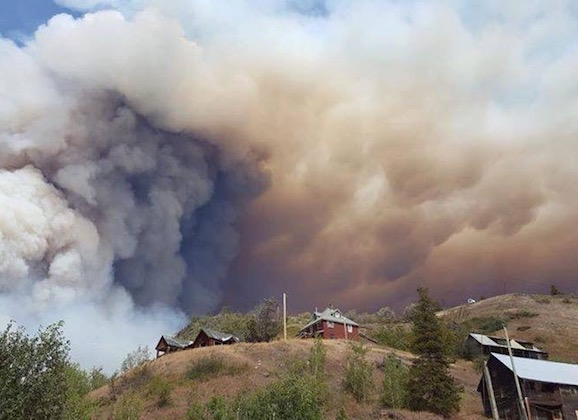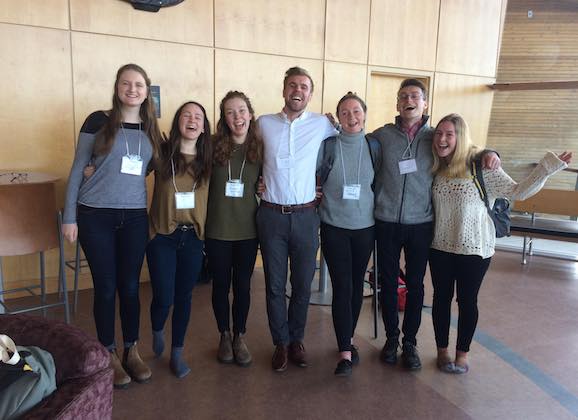Guest post: Navigating the critical conversations at the Diversity Research Forum
This is my last semester at the University of Victoria, but it was my first time attending the Provost’s Diversity Research Forum. The theme this year was “Critical Conversations: Reconciliation and Resurgence.” I have some awareness about the Truth and Reconciliation Commission of Canada (TRC), but not enough to confidently say that I know what the TRC is actively doing. My work and school experiences have made me aware of Canadian history, but I cannot say that I have had the opportunity to connect deeply with the truth.
The two-day forum opened on Jan. 21 in the First Peoples House. A prayer from Elder Skip Dick (Songhees Nation) set the tone for the next two days. His words resonated with me because he reminded us all that the university campus has been blessed as a “home away from home” for students, and that conversations are essential to rebuilding relationships.
UVic Chancellor Shelagh Rogers spoke about the impact of European Colonization on the Oral History of the Indigenous Peoples, saying that “losing language meant losing culture, losing family, losing everything.”
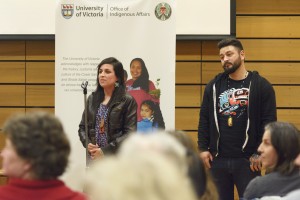
The filmmakers of “Mia,” Amanda Strong and Bracken Hanuse Corlett, answering questions about their work.
A stop-motion documentary called Mia was presented to the audience. The filmmakers Amanda Strong and Bracken Hanuse Corlett talked with the audience, answering questions about the video, like what people had or had not understood, the goal of the film, and what had resonated with people most about the visual imagery. These presentations and speeches reinforced my feelings of ignorance and inexperience when it comes to cultural oppression.
Two of the fascinating topics in the afternoon of Jan. 22 were “Decolonizing Pedagogies” and “Beyond Allyship: Solidarity in Action.” I chose to go to “Global and Indigenous Perspectives on Mental Health,” which was moderated by Andrew Marton, Director for the Centre for Asia Pacific Initiatives, and included panelists who had international perspectives on mental health.
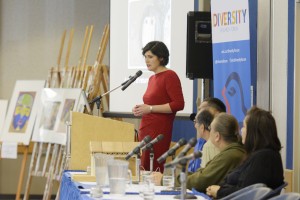
The artwork from residential school survivors that was presented at the luncheon on Friday. This is particularly powerful to me because for some of the individuals who went through the residential schools this artwork is all they have left of their childhood.
I found this topic particularly stimulating, as I had recently attended the UVic Mental Health Initiative with keynote speakers TEDx speaker and mental health specialist Dr. Shimi Kang and Olympic medalist and UVic student Gillian Carleton. For me, the takeaway message from the panel was that you can always attempt to be culturally sensitive, but it is far better to be culturally competent. Too often, people anticipate cultural differences but instead of waiting to hear what individuals want, society allocates a method to deal with the difference. Cultural diversity always needs to be considered, but attempts to understand another’s culture need to be guided by the individuals whose culture is trying to be understood.
The presentations made it clear to me that while I may have worked in communities that have experienced cultural oppression and assimilation, I can never say that I know what the people in those communities are going through. I cannot say that I understand. I cannot admit that I have felt oppressed. All I can do is support the conversation and allow people to share their stories, with all my biases set aside.
This is a guest blog post by Kate VanGiesen. It originally appeared in the online version of The Ring.

